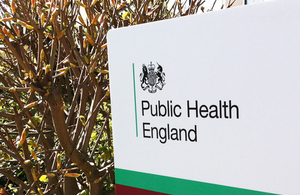Declining Ebola case numbers, new control methods prompt PHE screening scale-back
Public Health England (PHE) is scaling down screening arrangements following a sustained decline in the Ebola outbreak in West Africa.

PHE logo
Other factors influencing the decision include the introduction of new control methods such as a highly-effective Ebola vaccination, the WHO declaring Sierra Leone Ebola transmission free and the continued low risk presented to the UK by the disease.
Under the scaled back operations, from 5 December 2015 screening will stop for travellers from Sierra Leone, Guinea and Liberia. PHE will maintain its monitoring system for high-risk returning workers until the outbreak has been declared over in the affected countries.
The latest risk assessment assessed the likelihood of further Ebola Virus Disease (EVD) cases being imported into the UK as very low and the risk of transmission occurring within the community in the UK as negligible due to the range of robust measures that have been put in place.
Professor Paul Cosford, PHE’s Director for Health Protection and Medical Director, said:
We’re pleased that the Ebola outbreak in West Africa has declined to a level that warrants reduced screening arrangements.
Fewer healthcare workers returning from West Africa have had contact with Ebola cases, greatly lessening their risk of contracting the disease or bringing it back to the UK. However, we want to stay vigilant and for this reason we will continue to operate our returning workers scheme, screening and monitoring those who may have been exposed to Ebola in West Africa. This is a cornerstone of our protection of the public’s health and it will continue for as long as necessary.
We ask that people travelling to West Africa who may be exposed to Ebola keep registering with Public Health England’s returning workers scheme so they can be appropriately monitored when they return to the UK.
The decline in the outbreak is thanks to the efforts of the global response to control the virus’ spread, the control measures in place in West Africa and the recent introduction of an effective vaccine.
Health authorities in West Africa can now use ring vaccination as an Ebola control tool. The successful rVSV-ZEBOV Ebola vaccination is being used to vaccinate relevant contacts of Ebola patients.
The risk Ebola poses to the UK public is very low and continues to decrease due to the considerable decline in the scale of the epidemic in West Africa, the efforts of the global response to control the virus’ spread, the control measures in place in West Africa and the low number of people entering the UK from affected areas.
Public Health England is proactively monitoring the risks from Ebola to the UK population. We will continue this scheme until the epidemic is over in the affected countries.
We are maintaining a high level of protection against Ebola by adapting our response to the current situation and through focused delivery of the screening programme.
PHE will continue to work with government and NHS colleagues to ensure the UK remains alert to, and prepared for the risk of Ebola.
Since the start of the outbreak, PHE has screened 14,253 people at the border, tested 302 people for Ebola and monitored 645 individuals who have returned from West Africa. In addition, over 220 PHE staff have deployed to Sierra Leone, Guinea and Liberia to date.
PHE remains committed to supporting West Africa until the outbreak is declared fully over.